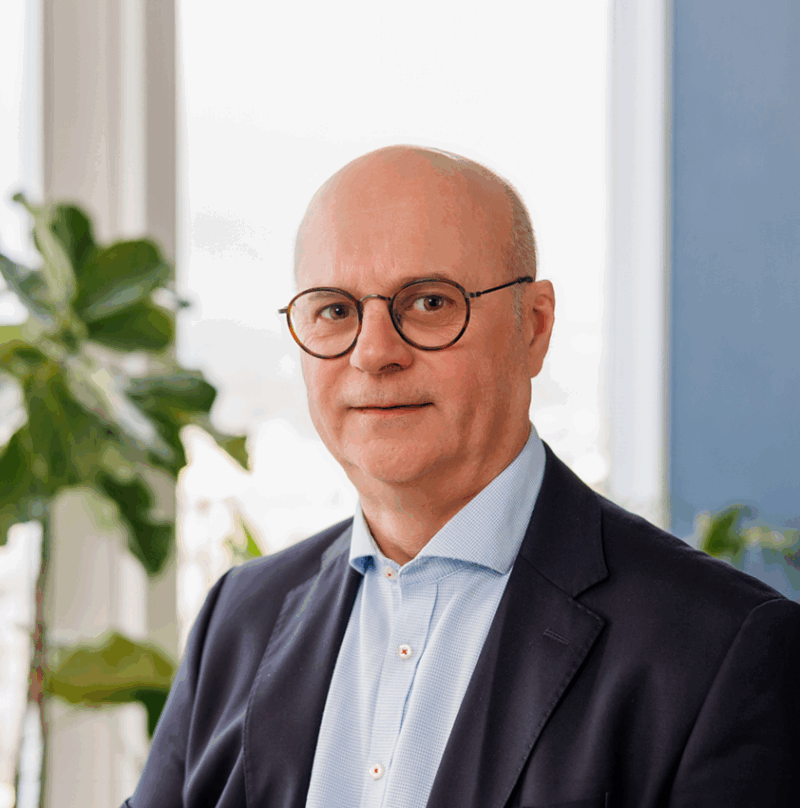Practice Areas
Biography
Pascal Moutard began his career in intellectual property at the European Patent Office, where he served as an examiner from 1988 to 1993 in advanced technical fields, notably nuclear magnetic resonance (NMR). He then continued his career in France as a French and European Patent Attorney, bringing over 37 years of experience to a diverse client base ranging from innovative start-ups to major international industrial groups.
A partner since 2003, he has held positions as Deputy Managing Director and later President of Brevalex (now Santarelli), and currently heads the Grenoble office. His practice covers both the acquisition and management of intellectual property rights and contentious and pre-contentious matters, in technically complex fields such as electronics, physics, semiconductors, computer science, software, and medical imaging.
A recognized specialist in proceedings before the European Patent Office (EPO), Pascal has been involved in more than 35 oppositions and appeals, with active participation in oral proceedings both at first instance and before the Boards of Appeal. His notable successes include the favorable outcome of appeal T48/17, which fully reinstated a patent in the field of power transmission, and appeal T1895/06, confirming the validity of a medical imaging patent after a lengthy opposition procedure.
A graduate engineer of the École des Mines de Saint-Étienne and Ph.D. in Physics from the University of Lyon, he also holds diplomas from CEIPI (patents, trademarks, and designs), a Master’s degree in Intellectual Property from the University of Lille, and a university diploma in European patent litigation. He is a French Patent Attorney, a European Patent and Trademark Attorney before the EPO and EUIPO, and qualified to represent clients before the Unified Patent Court (UPC). More recently, he has completed CEIPI’s specialized training on the UPC and on Artificial Intelligence and Intellectual Property.
Deeply involved in the profession, Pascal serves as Chair of the epi By-laws Committee and is an active member of several professional associations, including the CNCPI (French Patent & Trademark Attorneys Institute), IEAM (Institute of Expertise, Arbitration and Mediation), and VPP (Association of Intellectual Property Experts in Industry). Trilingual in French, English, and German, he has spoken at conferences and training sessions across France, Europe, the United States, and Asia.
Combining high-level technical expertise, extensive litigation experience, and an international strategic vision, Pascal Moutard assists his clients in the protection, valorization, and defense of their innovations with a rigorous, pragmatic approach fully aligned with their competitive challenges.
Education
- Civil Engineer, École des Mines de Saint-Étienne
- PhD in Physics, University of Lyon
- Graduate of the CEIPI (Patents, Trademarks & Designs)
- Master’s Degree in Intellectual Property, University of Lille
- University Diploma in “Patent Litigation in Europe”
Professional IP Associations
- CNCPI: Compagnie Nationale des Conseils en Propriété Industrielle (French Patent & Trademark Attorneys Institute)
- EPI: Institute of Professional Representatives before the European Patent Office
- IEAM: Institut d’Expertise, d’Arbitrage et de Médiation (Institute of Expertise, Arbitration and Mediation)
- ACPI: French Association of Intellectual Property Attorneys
- AIPLA : American Intellectual Property Law Association
Awards & Rankings

Décideurs – Leaders League 2025
Professional Ethics
Our IP attorneys and lawyers are bound by a strict code of professional conduct, ensuring the highest ethical standards in their relations with both clients and peers. They are committed to safeguarding the client’s economic interests, carrying out their mission through to completion, and working with full transparency (quotes, billing, general terms and conditions, ancillary costs).
Conflicts of Interest
Our IP attorneys and lawyers comply with the ethical rules of their profession regarding conflicts of interest. They ensure that no conflict exists before starting a new assignment and promptly inform the client of any situation that could interfere with the proper conduct of the assignment and/or risk compromising its objective execution.
